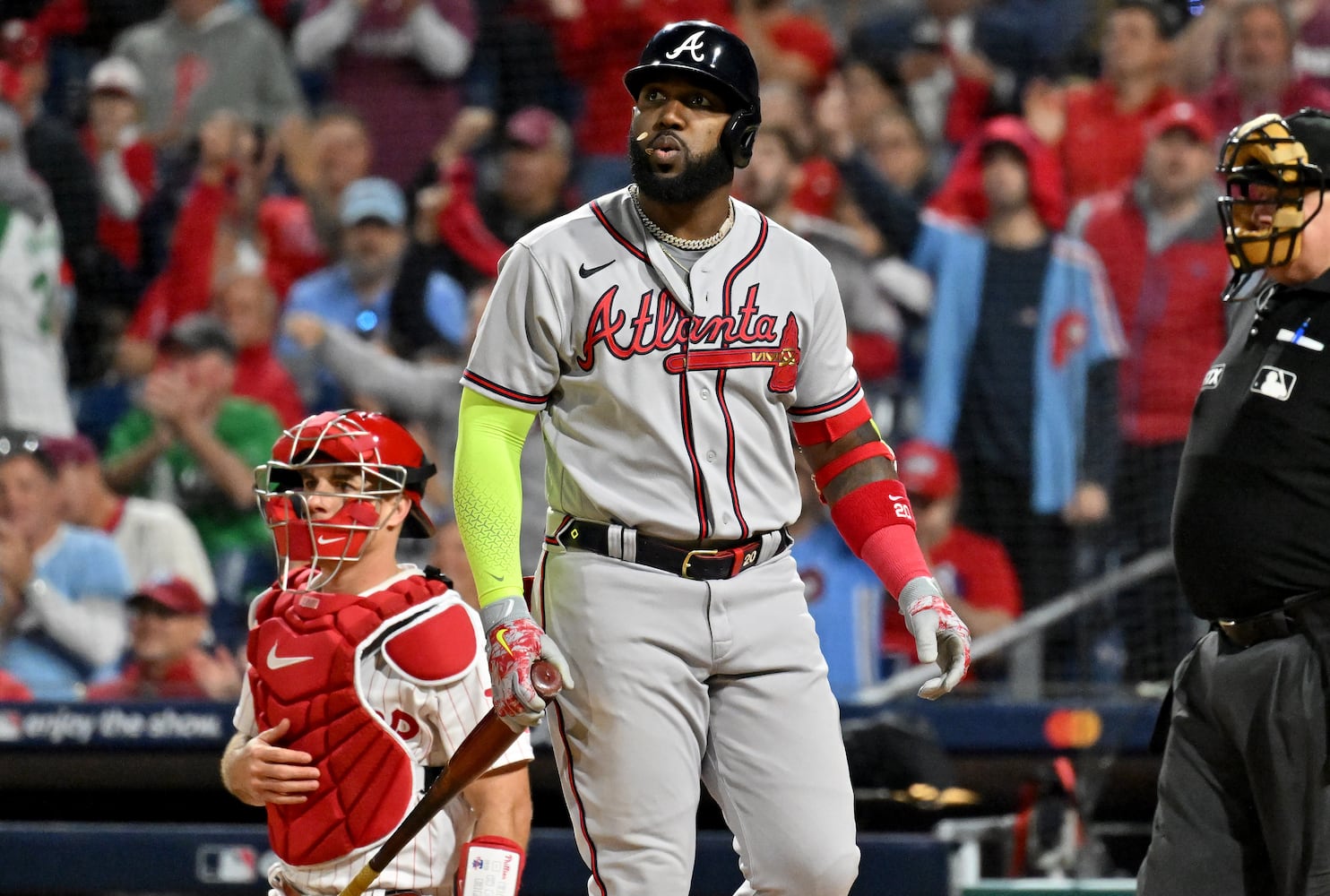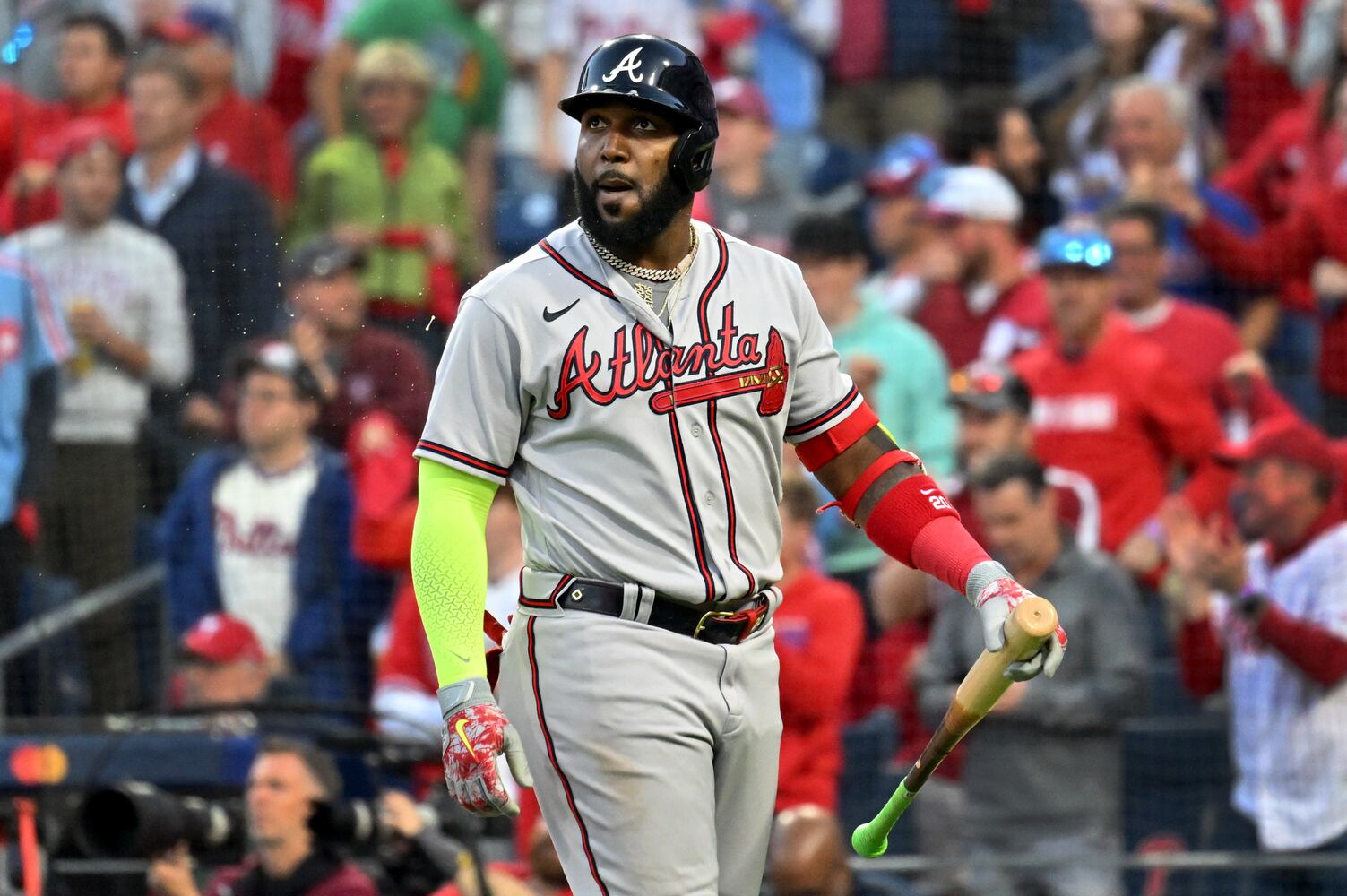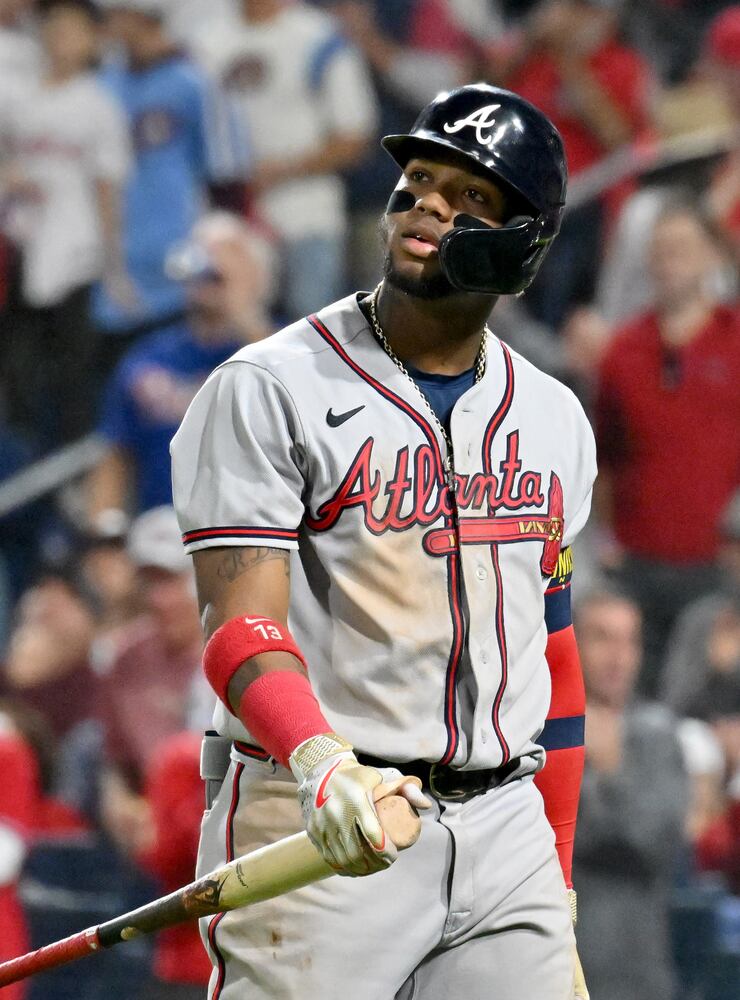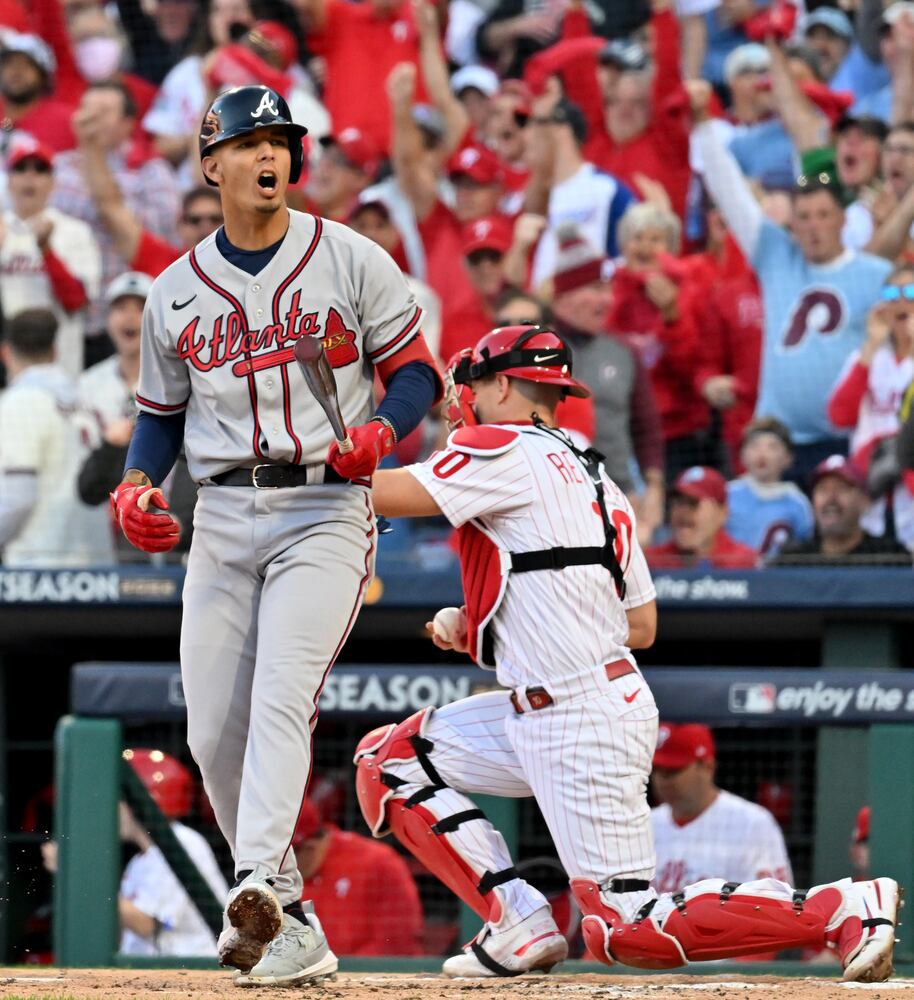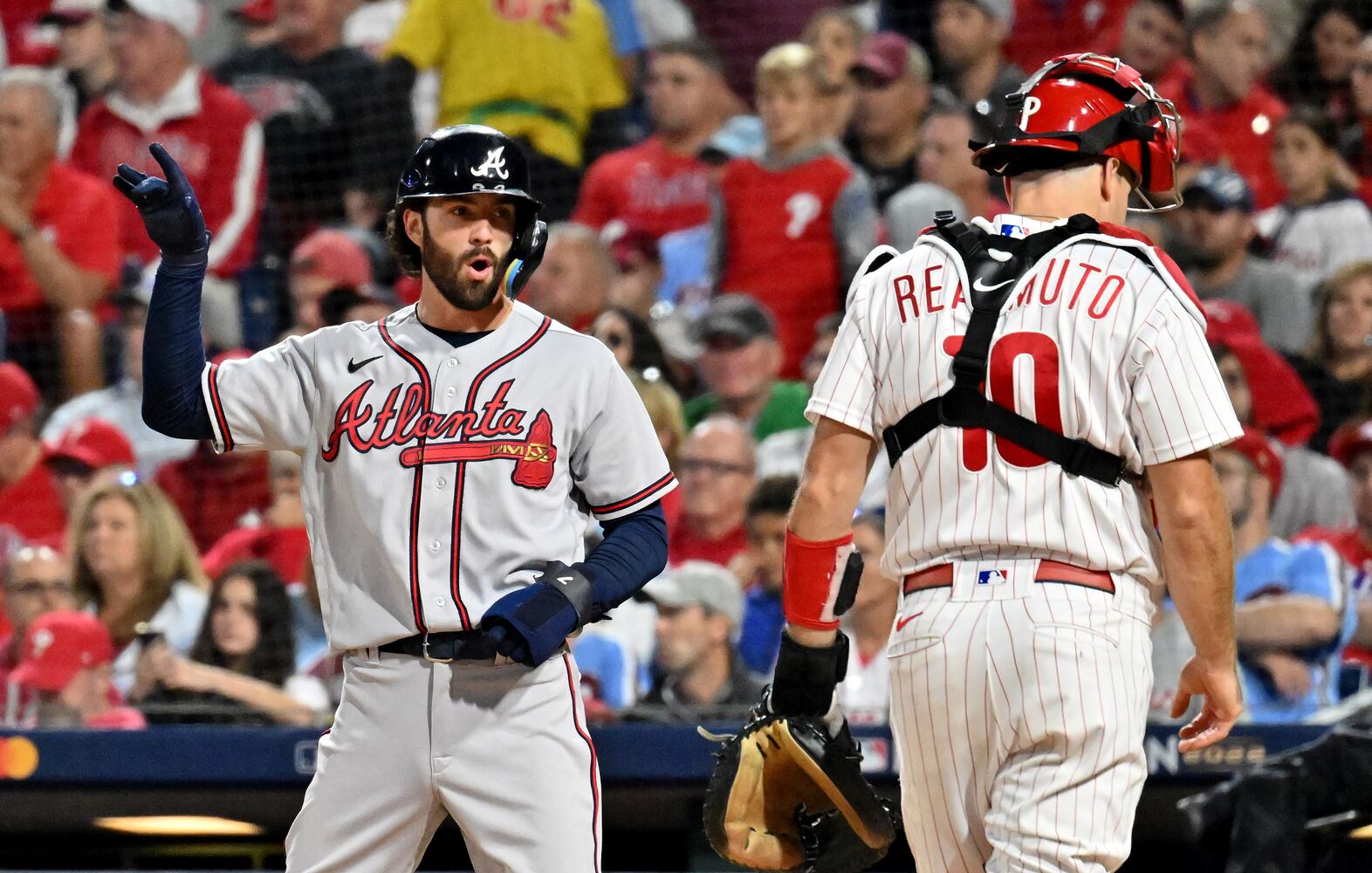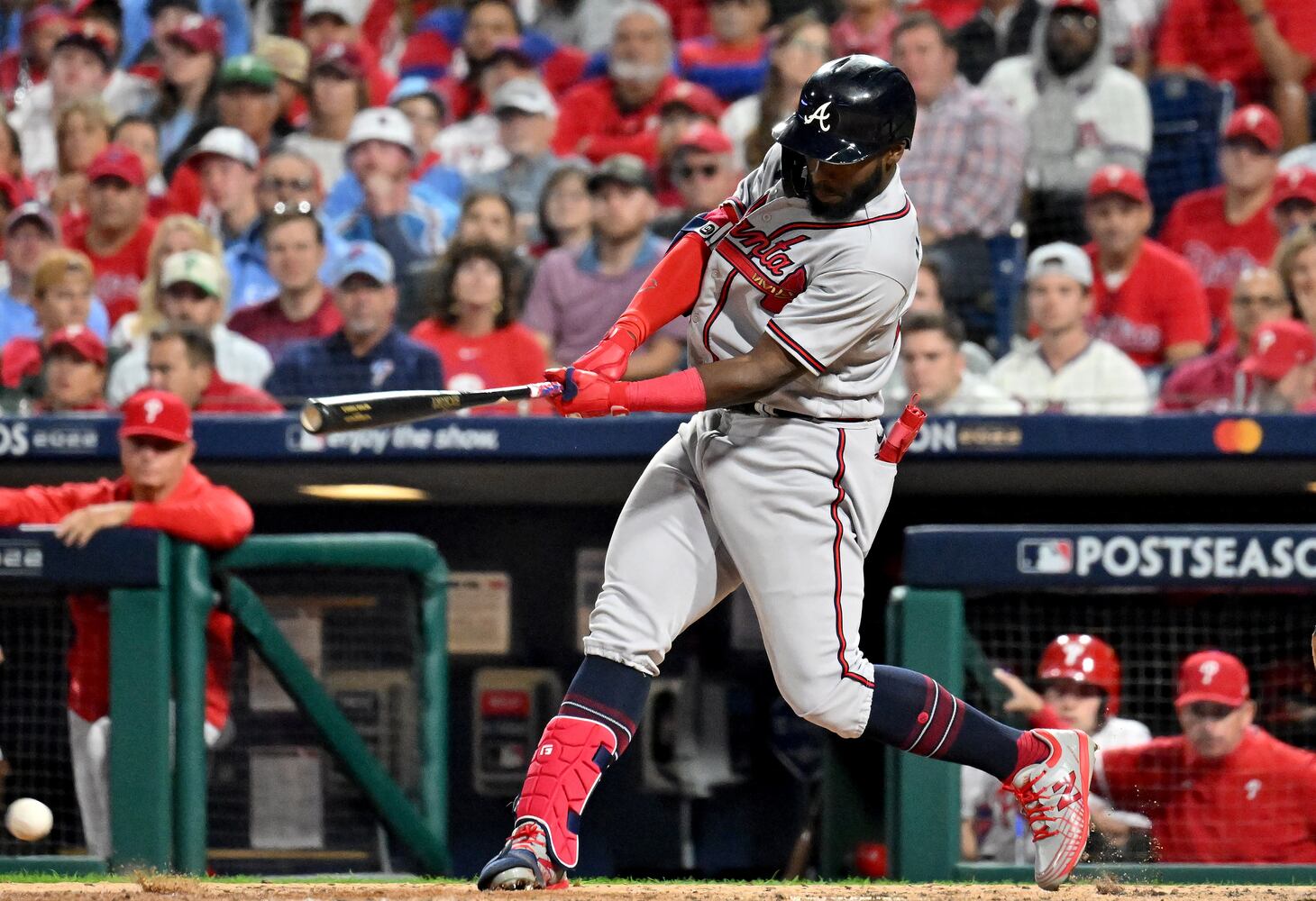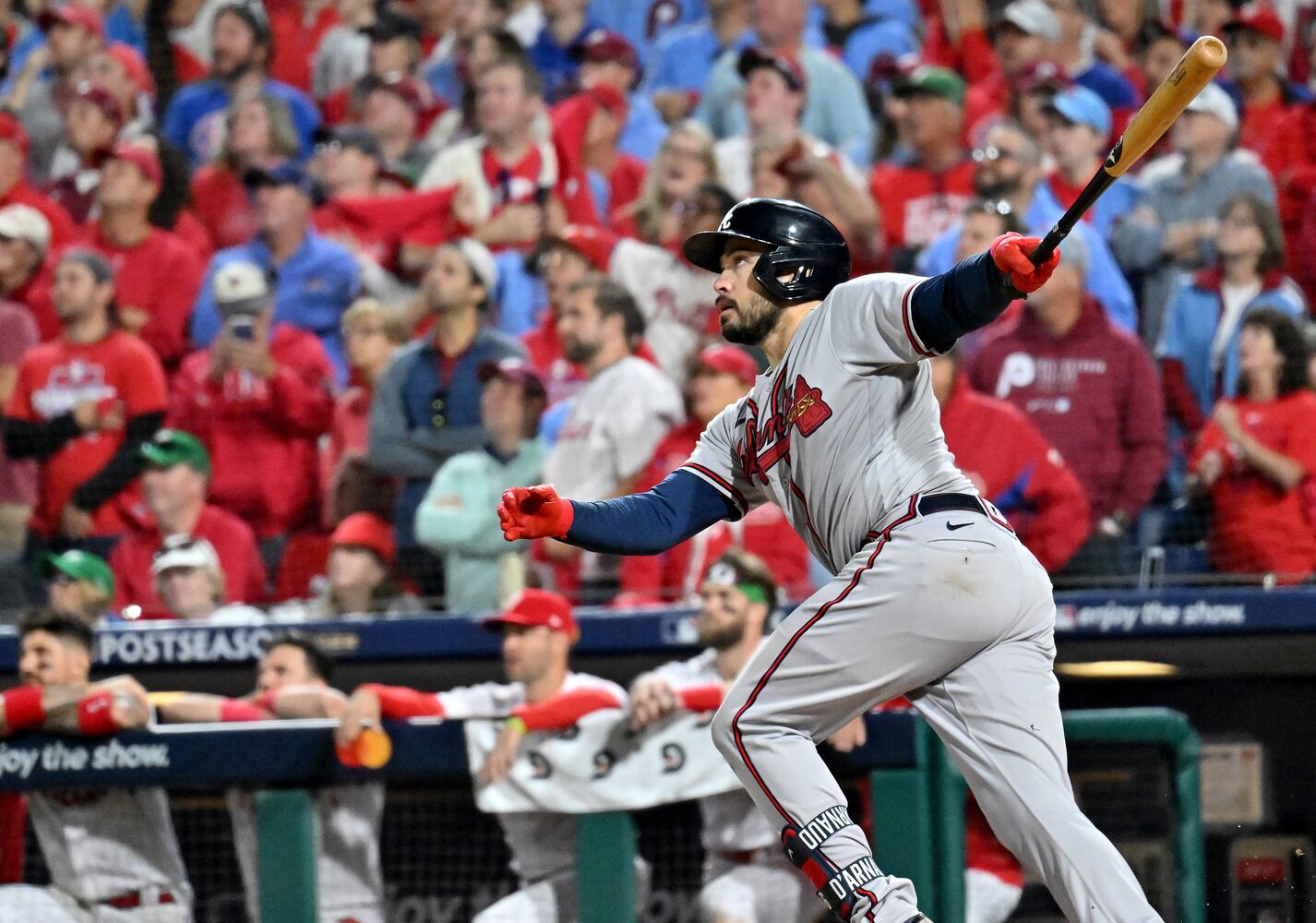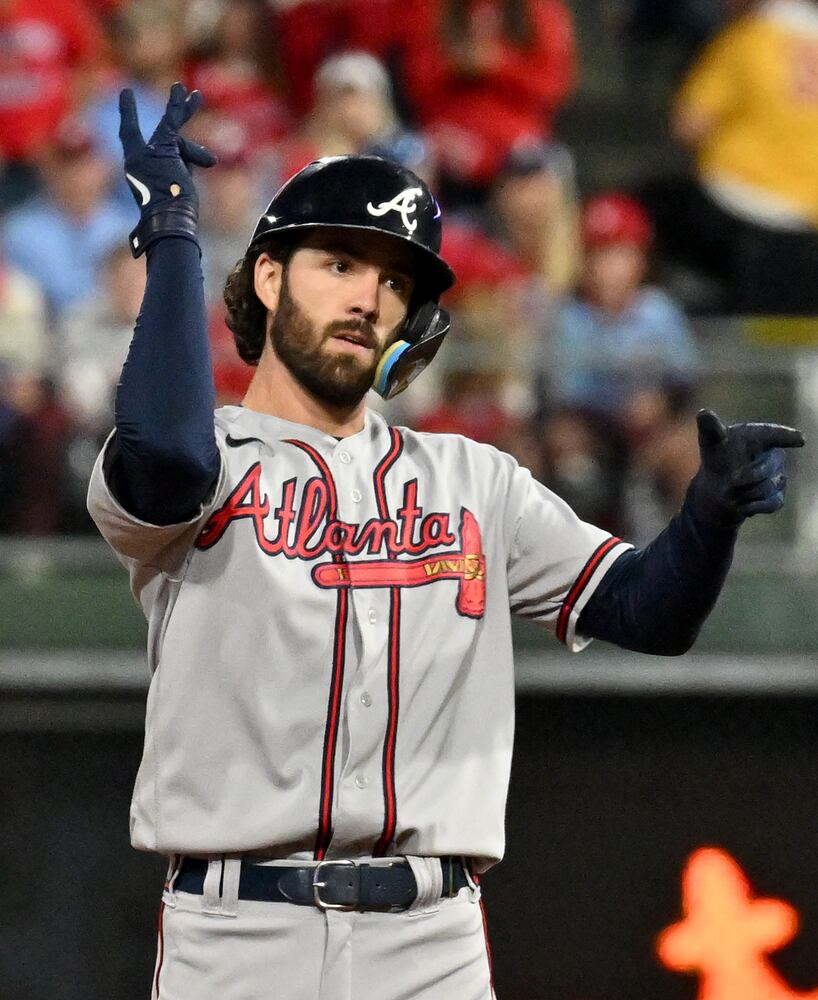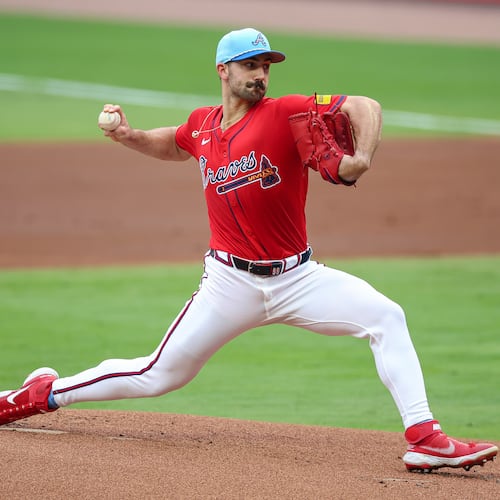PHILADELPHIA – There aren’t many more proven teams in American professional sports than the Braves, who throughout the past five years have experienced every high (a championship) and low (a 10-run deficit through one half-inning) the postseason offers.
They’ve competed in every environment. Just last fall, the Braves played in the deafening indoor battleground of Milwaukee, faced the mighty Dodgers before their late-arriving but always fervent audience, and overcame the orange sea and roaring choo-choo in Houston. But Friday at Citizens Bank Park might’ve been the crème de la crème of inhospitable conditions.
The unrelenting Philadelphia faithful, much like their team, were in tip-top shape. Their brash style was displayed for the country – and more important, the Braves – to behold. The noise peaked in the third inning, when the Phillies scored six times en route to their 9-1 Game 3 victory.
For the first time since Game 7 of the 2020 National League Championship Series, the Braves have their backs against the wall. A loss Saturday would make this fabulous 101-win season a failure. This time, the reigning world champions look like the team victimized by another underdog run.
“We’ve been in these games before,” Braves manager Brian Snitker said. “A lot of these guys have. But we didn’t face (an elimination game) last year. But now, we’ve got to go out and win one in a row is what we have to do. And I trust these guys because we’ve been in tough spots before over the last few years.”
Circumstances flip swiftly in October. In less than 24 hours, the narrative might be different. The Braves could be headed back home to host a winner-take-all Game 5 on Sunday.
Or they could be turning their attention to offseason planning. The Braves’ dreams of becoming the first repeat champion in two decades hinge on Charlie Morton and company Saturday.
Morton was a candidate to start Friday. The Braves instead turned to rookie Spencer Strider, who was pitching his first game since Sept. 18 because of an oblique injury. After two brilliant innings, Strider’s velocity dipped, and the Phillies teed off. He looked overwhelmed for the first time this season.
Strider walked Brandon Marsh – the Buford native with a .679 OPS this season – on four pitches to begin the frame. After striking out Jean Segura, Strider made an errant pickoff attempt at first base that skipped past Matt Olson and allowed Marsh to take two bases.
Rookie Bryson Stott assembled the most important at-bat of the afternoon. He fouled off four consecutive pitches during a nine-pitch battle before slapping a double to right that scored Marsh.
“I think the at-bat that really got us going was Stott’s at-bat, how he was grinding and grinding, fouling pitches off,” Phillies manager Rob Thomson said. “And then I think it was a slider that he hooked down the corner.”
The Braves intentionally walked Kyle Schwarber, who didn’t have a hit in the series to that point, to face another struggling hitter in Rhys Hoskins, who prompted blasted the first fastball he saw into the left-field seats.
Citizens Bank Park, patiently awaiting such a moment, came unraveled with enthusiasm. Hoskins’ homer came off a 93.8-mph fastball – Strider’s slowest of the season. When J.T. Realmuto singled off the next pitch, Snitker lifted Strider.
Enter lefty Dylan Lee to face Braves-nemesis Bryce Harper, who demolished a fastball down the middle to make the score 6-0 and extend the euphoria among the 45,538. That was more than enough for Aaron Nola, the Phillies starter who tossed his third consecutive outing without surrendering an earned run.
It’s impossible to say if or how the raucous atmosphere affected the Braves, but it surely helped the Phillies. Infielder Jean Segura called it the best environment he’d played in. One long-time Phillies scribe opined that the reaction during Hoskins’ home run was the loudest he’s heard the ballpark. For their first home postseason contest in 11 years, the Phillies didn’t underwhelm.
“The crowd gave us energy,” Thomson said. “That’s as loud as I’ve been around. It was just fantastic. They went from first pitch to the last pitch. That was unbelievable.”
Citizens Bank Park constantly taunted the Braves. The crowd chanted “D-U-I” when Marcell Ozuna batted, a reference to his August arrest (Ozuna went 0-for-4 with three strikeouts). As the Phillies continued racking up runs, the crowd mocked the Braves with multiple tomahawk chops. The never-subsiding boos were thunderous and lengthy.
“I don’t think (the environment affected us),” Braves third baseman Austin Riley said. “They were loud. But at home, our stadium gets just as loud, if not louder. I don’t think that had an effect at all.”
Olson on the same subject: “Nah, I don’t think it was a reason we lost by such a large margin. It was a good crowd. It’s playoff baseball, that’s what you want, either side. But no, I don’t think it was an issue.”
The pressure shifts to the 38-year-old Morton, who’s known for his exceptional conversion rate in “big games.” He’ll need to buck a couple of trends: He has a 5.47 ERA in five starts against the Phillies this season. That number balloons to 7.04 in three starts at Citizens Bank Park (12 earned runs in 15-1/3 innings). Morton’s ERA on the road (5.72) is more than two runs higher than his home mark (3.05).
But Morton’s track record in pivotal games will give the Braves hope (he’s 5-0 in elimination games). He can help send this series back to Atlanta, where the Braves would again have the comfort of their own vibrant fan base. The Phillies will start veteran right-hander Noah Syndergaard, who hasn’t faced the Braves this season.
“We’ve got to win one in a row right now … and we’ve got the perfect guy out there to do it,” Snitker said. “Charlie’s been in these situations many times. And we need to start scoring some runs, also. We haven’t been able to mount any significant offense, though. We need to score some more.”
About the Author
Keep Reading
The Latest
Featured
